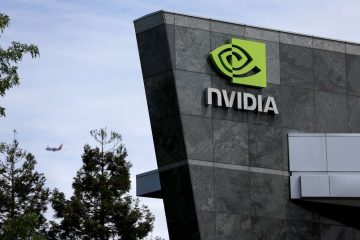Google acquires Wiz in a $23 billion deal.

Wiz was established four years ago by a group of former Israeli military officers with a clear objective: to expand rapidly and establish dominance in the field of cloud cybersecurity, ultimately reaping the benefits of their success.
According to The Wall Street Journal, Chief Executive Assaf Rappaport and his partners are close to achieving their goal as Google parent Alphabet is in advanced discussions to acquire Wiz for a staggering $23 billion. According to Crunchbase, this would be the biggest exit for any tech startup since Rivian’s $77 billion IPO in November 2021. The sale price would be nearly twice the valuation of Wiz by its venture capital investors just two months ago.
The deal talks offer a ray of hope for numerous private tech companies seeking a way out. Despite the impressive performance of companies like Microsoft and Nvidia, the startup sector, excluding artificial intelligence, is facing significant challenges. Venture funding has slowed down, the IPO market is not favorable, and regulatory scrutiny has dampened acquisition activities, resulting in a rather bleak situation.
“This has the potential to be an incredibly significant and rapid return for a private security company in the tech industry,” commented Alex Clayton, a general partner at the venture firm Meritech Capital, who does not have any ownership in Wiz.
Rappaport and his co-founders Ami Luttwak, Yinon Costica, and Roy Reznik have the potential to make significant profits from the deal. According to a source familiar with the company, both individuals have a stake of approximately 9% in Wiz. This implies that they stand to gain personal fortunes of around $2 billion each. The four individuals crossed paths more than twenty years ago during their time in the Israel Defense Forces cyber intelligence division known as Unit 8200. Several esteemed cybersecurity companies, such as Palo Alto Networks, Check Point, and Fireblocks, have been established by veterans of Unit 8200.
They founded their first cloud cybersecurity company, Adallom, in 2012. It was later acquired by Microsoft for $320 million in 2015. They gained valuable experience at the tech giant’s Azure cloud-computing division before embarking on their venture with Wiz in 2020.
Starting your first company can be a learning experience. In an interview last year with one of Wiz’s board members, Shardul Shah of Index Ventures, Rappaport expressed uncertainty about what to anticipate. Starting a second company can be quite a roller coaster ride.
Rappaport and the other co-founders have chosen not to provide a comment at this time, as stated by a spokeswoman.
The quartet initially named their second company Beyond Networks and had a strong focus on network security. However, they quickly shifted their focus to software that assists companies in scanning and detecting security vulnerabilities on popular cloud platforms like Azure and Amazon Web Services. They believed that customers would seek additional protection beyond what the tech giants offer. The company underwent a rebranding and changed its name to Wiz.
The 41-year-old Rappaport, hailing from Tel Aviv, frequently opts for a casual attire consisting of a hoodie adorned with Wiz’s logo, along with joggers and sneakers. This relaxed ensemble is commonly seen among tech founders.
His shoes, made by the high-end Italian brand Golden Goose, usually come with a price tag of over $500. It’s a significant improvement from his time at Adallom, where he was captured in photos sporting worn-out Converse sneakers.
Rappaport frequently brings his border collie Mika, known as Wiz’s chief dog officer, to work at the company’s offices in New York and Tel Aviv. He also encourages other employees to bring their dogs along. Mika has her own LinkedIn page, where she has held various positions, including as junior vice president of Canines at Microsoft.
Wiz also operates a cybersecurity toy store that offers tank tops and juggling balls specifically tailored for chief information security officers. This eye mask is proudly advertised as being completely free from any security incidents.
Wiz experienced rapid growth as an increasing number of businesses have transitioned their data and applications from local servers and data centers to the cloud. Its initial clients consisted of the global bank Barclays and food conglomerate Mars. It eventually attracted prestigious clients like Morgan Stanley and Slack, and boasts a customer base that includes 40% of the Fortune 500.
Wiz reported that its annual recurring revenue reached $100 million just 18 months after its establishment, and then further increased to $350 million in 2023. Throughout its journey, it attracted investments from prominent firms such as Index Ventures, its primary external stakeholder, Sequoia Capital, and Greenoaks.
During an interview at the Web Summit conference in 2021, Sequoia’s former leader Doug Leone, a Wiz board member, expressed his concern to Rappaport that his startup was raising an excessive amount of money at a rapid pace. However, the CEO chose to disregard Leone’s advice. In May, Wiz secured a substantial amount of funding, amounting to $1 billion, with a valuation of $12 billion. The purpose behind this influx of capital is to facilitate the acquisition of startups and expedite the company’s growth trajectory.
After a few weeks, Google approached. The tech giant had been consistently trailing behind Amazon and Microsoft in the cloud-computing industry. Thomas Kurian, the CEO of Google Cloud, was in charge of leading the negotiations.
Wiz couldn’t resist the allure of a $23 billion sale price. According to a source familiar with the matter, Google is considering valuing the startup at 46 times its current annual recurring revenue of $500 million. In comparison, CrowdStrike, a highly valued cybersecurity company that is publicly traded, has a market capitalization that is 25 times its annual recurring revenue.
Providing advanced security features similar to those offered by Wiz could give Google an edge in attracting more customers to its cloud service. The market is highly competitive, with increasing demand driven by the need for computing power by generative AI companies.
If the deal is finalized, it is expected to attract attention from antitrust regulators in the U.S. and Europe, who have been closely monitoring acquisition attempts made by established tech companies. Google is currently facing two lawsuits from the Justice Department regarding its dominance in search and alleged unfair practices in its ad-tech business.
In December of last year, Adobe decided to cancel its proposed $20 billion purchase of Figma, a collaboration software startup. The reason behind this decision was the inability of the two companies to find a clear path to regulatory approval in Europe. That dampened the optimism of venture capitalists who were expecting more significant sales in the tech industry. However, the mood could be brightened if a potential Google-Wiz deal materializes.
According to a report by the Journal, Google and Wiz are currently engaged in advanced sale discussions. Senator Richard Blumenthal of Connecticut expressed his concerns on the social media platform X, suggesting that this deal could serve as a prime example for antitrust experts on how to provoke regulators and evade legal and logical scrutiny in the pursuit of monopolistic power. It warrants careful examination and a healthy dose of skepticism.










